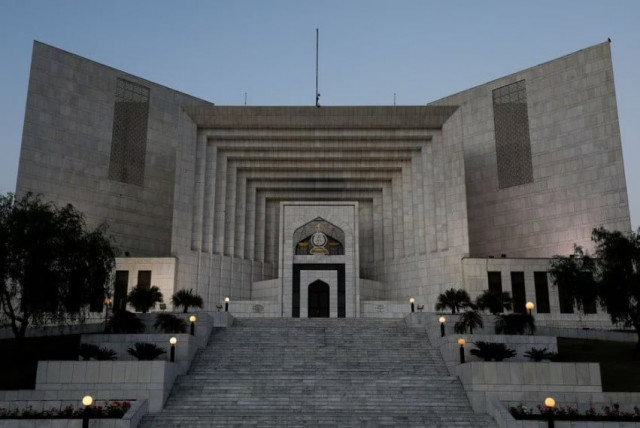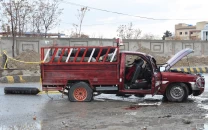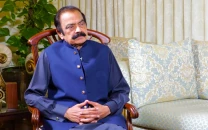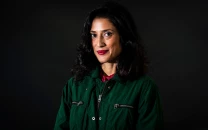How SC’s night vigil saved democracy
CJ Qazi Faez Isa pays homage to Justice Sardar Tariq Masood at farewell reference

Chief Justice of Pakistan (CJ) Qazi Faez Isa has narrated how the Supreme Court intervened at night to ensure timely elections after the Lahore High Court (LHC) issued an order, which, according to him, could derail the democratic process.
“A decision of the LHC could have derailed the election once again. We heard the case against this order during the night before going on leave,” Justice Isa said while addressing a farewell reference given in honor of SC judge Sardar Tarig Masood, who retired on Friday.
On December 14, the LHC suspended the Election Commission of Pakistan’s (ECP) notification appointing district returning officers (DROs), returning officers (ROs), and assistant returning officers (AROs) from the executive for performing duties at Feb 8 general elections.
However, a three-member bench—comprising Justice Isa, Justice Masood, and Justice Syed Mansoor Ali Shah—suspended the LHC ruling on December 15. The same bench later set aside the LHC order, paving the way for preparations for the last general elections.
The CJ noted that they wanted to hear the case with a bench consisting of three senior judges.
“But Justice Ijazul Ahsan declined to sit on the bench. After that, we included another senior judge [Justice Shah] and heard the decision at midnight. If it hadn't happened, the elections could have been derailed on the date set by the President of Pakistan and the ECP,” he added.
Commending his integrity and straightforwardness, the CJ noted that the objections raised to Justice Sardar Tariq Masood’s inclusion in a bench hearing an intra-court appeal against an SC order banning trial of civilians in military courts were baseless.
“Justice Masood had not expressed any opinion in his note on the matter of military courts. However, he recused himself from hearing the appeal after petitioners’ objection,” he said.
The last PML-N led government had decided to hold the trial of the alleged PTI activists who vandalized state and army properties on May 9, 2023, after the arrest of former prime minister Imran Khan.
A number of petitioners challenged the move in the SC and former CJ Umar Ata Bandial formed a larger bench including Justice Isa and Justice Masood to hear the petitions.
However, both the judges later refused to sit on the bench with Justice Masood also writing a note.
In the note, the judge had regretted that the petitions challenging the military court trials were filed by those who apparently were not detained, nor facing trial with regard to the offences, allegedly committed on May 9 in the cantonment areas.
Later, a five-member larger bench unanimously invalidated these trials on Oct 23, 2023. The bench directed the authorities to conduct the trials of such accused individuals in ordinary courts.
The government lodged an intra-court appeal against the verdict, and on Dec 13, 2023, a six-member SC bench—led by Justice Masood—admitted the appeal for hearing, suspending the Oct 23 verdict. The judge, however, recused himself from hearing the case after some petitioners raised objections to him.



















COMMENTS
Comments are moderated and generally will be posted if they are on-topic and not abusive.
For more information, please see our Comments FAQ